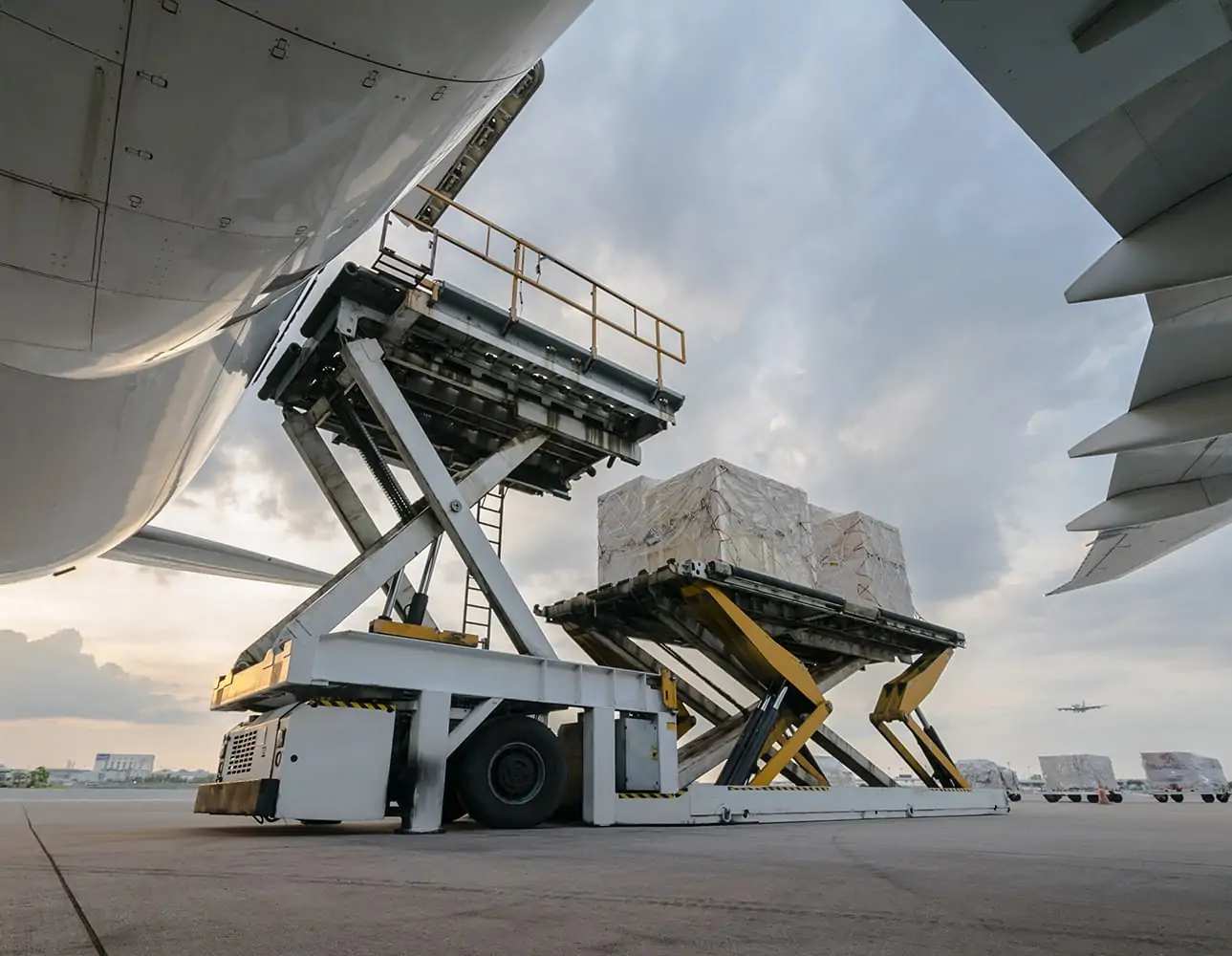
Trading between different countries has always come with a certain level of complexity – and that complexity has deepened since the United Kingdom left the European Union. Since the end of 2020, when the UK left the EU’s single market and customs union, British companies trading in the Eurozone have been governed by the Trade and Co-Operation Agreement.
This new agreement means that trade can still carry on without any tariffs as it did before, but it has increased the amount of organisation and red tape involved in the process.
Given that 42% of UK exports go to EU countries – a total of £340 billion worth of goods in 2022, according to Parliamentary research – getting these arrangements right is vital for successful international business operations in Europe and beyond.
A key part of those arrangements is having an Economic Operators Registration and Identification Number – commonly known as an EORI number. This guide tells you everything you need to know, including who needs an EORI number, what an EORI number is used for, how to apply for an EORI number in the UK, and what they mean for your business.
What is an EORI number used for?
An EORI number is used by authorities, importers, exporters, and freighters all over the world to easily identify the individual businesses that are trading. The EORI number format for a British company will start with GB (denoting Great Britain) followed by 12 digits. So, as an example of an EORI number, a British company could have GB234084423712, whereas a Dutch company’s number would start with NL, a German company’s with DE, and so on.
It may seem as though this is a further complication to doing international trade, but in reality, having an EORI number can make things much faster and easier than they would be otherwise. Previously, different countries and territories had their own standards and codes regarding import and export, which added unnecessary hassle for companies wanting to trade globally. But now, having an internationally recognised and accepted standard has removed the time-consuming stress of dealing with different types of code simultaneously.
By making it simple to identify all the businesses involved in trading internationally, moving goods through customs can be sped up and streamlined. At a time when fast global trade is more important than ever, this efficiency can be crucial for businesses wanting to avoid costly delays and satisfy the demands of international customers.
Who needs an EORI number?
It’s important to note that EORI numbers aren’t exclusive to trade involving European countries; you’ll need one to import or export goods with any country, wherever they are in the world. Post-Brexit, EORI numbers have become even more relevant and important. Although introduced in 2009 on a voluntary basis, they became mandatory at the beginning of 2021. EORI numbers are only applicable for the trade of goods, so if you only deal in digital services, then you won’t need to obtain one.
Because of the unique trade situation that applies in Northern Ireland post-Brexit, some businesses also need a special EORI number if they want to trade between Northern Ireland and mainland Great Britain. If you have an EORI number for EU trade, then you’ll already be covered for this, but you’ll need an XI-type EORI number if you just want to trade between GB and NI. However, EORI numbers are not needed for trade between Northern Ireland and the Republic of Ireland.
How do I apply for an EORI number in the UK?
HMRC has worked to make the process of applying for an EORI number as fast and straightforward as possible. The whole process can be completed online and should take no more than 10 to 15 minutes if you have all the required information. Getting all your documents together before you start can make things much easier.
You should make sure you have:
- Your full name and contact details
- Your position within the business
- VAT details (number, registered name and registered address)
- Relevant ID and password for the Government Gateway platform
If you’re applying on behalf of an organisation that isn’t VAT registered, then things are a little different. You’ll need:
- The name, address and contact details of the business
- Information about the nature of the business
- Details of suppliers, freight agents and method of import/export
- Information about the type, quantity and value of the goods being imported or exported
If you’re a sole trader or partnership applying for an EORI number, you may also need your National Insurance number and your Unique Taxpayer Reference.
HMRC also provides plenty of help and support for businesses applying for EORI numbers on their website.
Can you ship without an EORI number?
You cannot import or export goods with any other country if you don’t have an EORI number. If you don’t apply for and obtain an EORI number, your goods will not pass through customs and will simply get stuck at the border.
Although the likelihood of getting fined for not having an EORI number is relatively low, the financial impact can still be extremely severe. The longer your goods are tied up in customs, the more disruption it will cause to your business, whether it’s dissatisfied customers who expect to be refunded or any costs you might incur in having the goods shipped back to your premises or fulfilment centre. On top of that, your goods will also incur storage expenses, which can quickly ramp up if they’re held up at the border for an extended period of time.
All in all, this means that trying to trade without an EORI number can be extremely damaging to cash flow, profitability, and ultimately, the viability of your business.
How long does it take to get an EORI number?
Most businesses are able to get their EORI number immediately once they have completed the application successfully. However, in some cases, HMRC will undertake additional checks on the applicant to ensure everything is correct and above board. In this situation, receiving the number normally takes up to five working days. It can also take slightly longer to complete your registration and obtain an EORI number if you intend to import or export using air freight rather than maritime shipping.
Trade should not take place until the EORI number has been obtained, even if the application is still being processed by HMRC.
Frequently asked questions
How can I find my EORI number?
Once your application has been completed, HMRC should send an email to the email address you supplied in the application confirming your EORI number. HMRC also provides an online service page from which you can enter your VAT number and check whether there is a linked EORI number registration.
How much does it cost to get an EORI number?
The good news is that applying for an EORI number is free, and so doesn’t directly add to the cost of trading within the Eurozone. In fact, obtaining the number as soon as possible can actually help save a lot of time and stress, as it can prevent unintended delays and issues when you start shipping and ordering goods.
Is an EORI number the same as a VAT number?
EORI numbers and VAT numbers are different, although the application procedure for the two are linked together by HMRC. If you don’t have a VAT number already, you’ll get the chance to apply for an EORI number in the UK at the same time. If you already have a VAT number, it’s mandatory to obtain an EORI number before you start trading in the EU.
Do I need an EORI number even if I’m not VAT registered?
Yes – it’s still a requirement to have an EORI number for trading internationally, even if you don’t meet the VAT registration threshold (as of 2024/25, that’s a turnover of £90,000 per year). You can apply for the EORI number in the UK in the same way, and you’ll have to declare that you aren’t VAT registered during that process.
Do private individuals need to use EORI numbers?
EORI numbers are not required for individuals who are sending or receiving parcels that are not for trading or business purposes. However, self-employed people such as sole traders and partnerships will require an EORI number, even if they only import or export from the EU on an occasional or one-off basis.
Are EORI numbers permanent?
Yes – once you’ve obtained an EORI number for your business, that will remain connected to that business permanently. If you run or set up other businesses, then you would need to obtain new EORI numbers for those.
Do I need multiple EORI numbers?
Generally, the only circumstance in which you would need multiple EORI numbers is if you have established bases in multiple countries and are importing and exporting from them simultaneously. In this case, you would need separate EORI numbers for each relevant country; HMRC can issue you an EORI number for the UK, but you would have to go through different authorities in other countries as required.
Looking for a partner that can support with cross-border order fulfilment and global delivery? Talk to the ILG team today to discuss your specific needs.
Contact Us
More insights >
How to Manage Your Stock with SKU Numbers: Best Practice Guide
If you’re an e-commerce business, efficient inventory management is essential – and one important part of this is understanding SKU numbers.
ILG is a Finalist for Best Logistics Solution at the BeautyMatter 2025 Awards!
We’re thrilled to announce that for the third year in a row, ILG is a finalist for ‘Best Logistics Solution’ at the BeautyMatter 2025 Awards!

